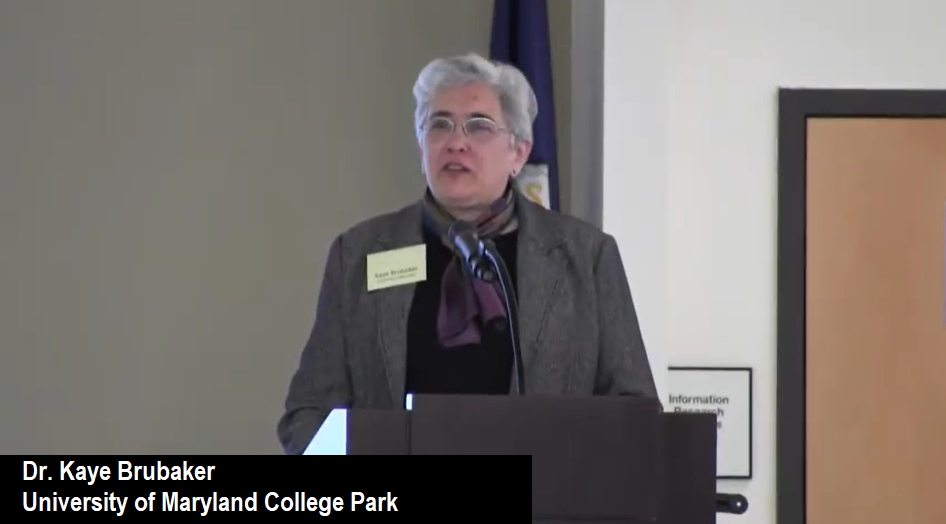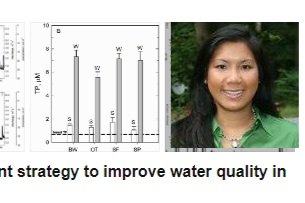MEES IN THE NEWS
NEWS ARCHIVE
SHANELLE HAUGHTON - 2022 NOAA FELLOWSHIP AWARD RECIPIENT
August 1, 2022 - Congratulations to our very own Shanelle Haughton (Ph.D., ECOL SYS), who was awarded and has accepted a one-year fellowship with the NOAA Educational Partnership Program for Minority Serving Institutions Graduate Fellowship Program. Shanelle Haughton is one of three graduate students selected from across the country as an inaugural participant in NOAA Education's José E. Serrano Educational Partnership Program with Minority Serving Institutions Graduate Fellowship Program pilot. Shanelle is advised by Dr, Joseph Pitula (UMES) and is pursuing her Ph.D. in MEES at the University of Maryland Eastern Shore. Shanelle also serves as the University of Maryland Eastern Shore representative on the MEES Graduate Student Organization (MEES-GSO). Shanelle began her internship earlier this year at the NOAA Alaska Fisheries Science Center, located in Seattle, Washington. In an article by UMES, Shanelle hopes to “make key connections with NOAA scientists and mentors” as she explores not just her own research interests, but also other research opportunities. For more information, click here. This is a well earned recognition of all your hard work. The MEES program is very proud of you! Congratulations, Shanelle!
Shanelle Haughton Photo Courtesy: UMES
AUGUST 2022 - NATIONAL water quality MONTH
Monthly Spotlight: National Water Quality Month (August 2022) - Dr. Kaye Brubaker, a longtime MEES faculty member is a Professor at the Department of Civil and Environmental Engineering on the College Park campus and is also Director of that departments Maryland Water Resources Research Center (MWRRC). Dr. Brubaker is a hydrologist whose research interests are broadly in the areas of hydroclimatology and mechanistic modeling of watershed hydrology and in-stream water quality processes. Check out her presentation at College Park’s climate change symposium hosted by the Department of Agricultural & Natural Resources (AGNR) entitled: “What Does Climate Change Mean for Water Resources?” The symposium’s panel also included presentations from two other MEES Faculty members: Dr. Paul Leisnham (AGNR) and the symposium’s host - Dr. Adel Shirmohammadi (AGNR).
Faculty Focus: Dr. Meng Xia is a MEES Faculty member and a Professor at the Department of Natural Sciences at the University of Maryland Eastern Shore (UMES). Dr. Xia, along with several other MEES Faculty members, are part of a collaborating team at UMES’ Chesapeake Water Quality Center whose research efforts are focused on finding economical and practical solutions to water quality issues facing the Chesapeake Bay. His latest research is currently in press, in the March 2022 edition of Environmental Microbiology entitled, “Sulfide oxidizers are abundant and persistent water column populations responsive to hypoxia in the Chesapeake Bay:. Also, check out the 2021 Chesapeake Bay and Watershed Report Card by the University of Maryland Center for Environmental Science, which is a detailed assessment of the Chesapeake Bay and its Watershed.
MEES Research Corner: Keota Silaphone (Ph.D., ENVSC) is a Professor of Geography at Salisbury State University and has over 10 years of practical working experience in watershed planning, water quality issues, and implementing best management practices (BMPs). She is also a Ph.D. MEES graduate student (advisor Dr. Tom Fisher) whose research is focused on land use impacts on water quality and using remote sensing and GIS applications in water quality research. Click here for a recently published paper in the December 2021 issue of the Journal of Environmental Management entitled: “An evaluation of the Chesapeake Bay management strategy to improve water quality in small agricultural watersheds”. Keota is currently working on her dissertation at the University of Maryland Center for Environmental Science’s Horn Point Laboratory in Cambridge, Maryland.



